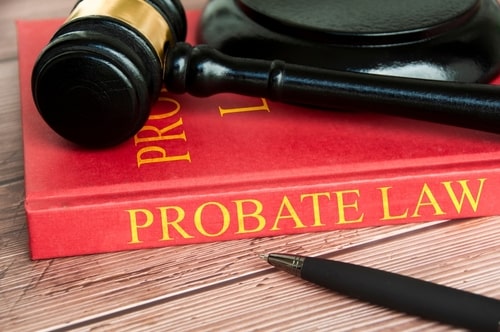Understanding the Probate Process in Texas
The probate process in Texas can be complex, but understanding its fundamental aspects is crucial for anyone considering self-representation. Probate is the legal procedure through which a deceased person's estate is administered, including settling debts and distributing assets to beneficiaries. Familiarizing yourself with this process can help you navigate it more effectively, even without legal representation.
In Texas, the probate process generally involves filing a will with the probate court, notifying heirs and creditors, and managing the estate's assets. Key steps include appointing an executor, inventorying the estate, and ensuring debts are settled before distribution. Knowing these steps can mitigate potential pitfalls and help you prepare for the responsibilities that come with self-representation.
Common Challenges Faced by Self-Represented Individuals
Self-representation in probate court often presents unique challenges that can significantly impact the outcome of a case. Individuals may struggle with understanding legal terminology, procedural rules, and court expectations, which can lead to mistakes that delay proceedings or result in unfavorable decisions.
For example, failing to file necessary documents on time or incorrectly completing forms can jeopardize your case. Additionally, self-represented individuals may find it difficult to effectively communicate their case to the judge, especially in emotionally charged situations. Recognizing these challenges can help you prepare better and seek additional resources or support when needed.
Resources for Self-Represented Litigants in Texas
There are numerous resources available for individuals who choose to represent themselves in Texas probate court. These resources can provide valuable information, guidance, and support to help navigate the legal landscape effectively.
Local law libraries, online legal aid websites, and self-help centers can offer templates for necessary documents, instructional materials, and even workshops on probate procedures. Additionally, community organizations often provide access to legal professionals who can offer advice or answer questions, ensuring that self-represented litigants are not entirely alone in their journey.
When to Consider Hiring a Probate Attorney
While self-representation can be a viable option for some individuals, there are specific circumstances where hiring a probate attorney may be necessary. If the estate is particularly large, complex, or if there are disputes among heirs, professional legal assistance can help ensure that the probate process runs smoothly.
Hiring an attorney can provide peace of mind, as they can navigate the legal intricacies and advocate on your behalf. They can also help in drafting legal documents, representing you in court, and advising you on the best course of action based on the unique circumstances of your case. Understanding when to seek professional help is vital in protecting your interests throughout the probate process.
Understanding the Probate Process in Texas
The probate process in Texas can be complex, but understanding its fundamental aspects is crucial for anyone considering self-representation. Probate is the legal procedure through which a deceased person's estate is administered, including settling debts and distributing assets to beneficiaries. Familiarizing yourself with this process can help you navigate it more effectively, even without legal representation.
In Texas, the probate process generally involves filing a will with the probate court, notifying heirs and creditors, and managing the estate's assets. Key steps include appointing an executor, inventorying the estate, and ensuring debts are settled before distribution. Knowing these steps can mitigate potential pitfalls and help you prepare for the responsibilities that come with self-representation.
Common Challenges Faced by Self-Represented Individuals
Self-representation in probate court often presents unique challenges that can significantly impact the outcome of a case. Individuals may struggle with understanding legal terminology, procedural rules, and court expectations, which can lead to mistakes that delay proceedings or result in unfavorable decisions.
For example, failing to file necessary documents on time or incorrectly completing forms can jeopardize your case. Additionally, self-represented individuals may find it difficult to effectively communicate their case to the judge, especially in emotionally charged situations. Recognizing these challenges can help you prepare better and seek additional resources or support when needed.
Resources for Self-Represented Litigants in Texas
There are numerous resources available for individuals who choose to represent themselves in Texas probate court. These resources can provide valuable information, guidance, and support to help navigate the legal landscape effectively.
Local law libraries, online legal aid websites, and self-help centers can offer templates for necessary documents, instructional materials, and even workshops on probate procedures. Additionally, community organizations often provide access to legal professionals who can offer advice or answer questions, ensuring that self-represented litigants are not entirely alone in their journey.
When to Consider Hiring a Probate Attorney
While self-representation can be a viable option for some individuals, there are specific circumstances where hiring a probate attorney may be necessary. If the estate is particularly large, complex, or if there are disputes among heirs, professional legal assistance can help ensure that the probate process runs smoothly.
Hiring an attorney can provide peace of mind, as they can navigate the legal intricacies and advocate on your behalf. They can also help in drafting legal documents, representing you in court, and advising you on the best course of action based on the unique circumstances of your case. Understanding when to seek professional help is vital in protecting your interests throughout the probate process.

